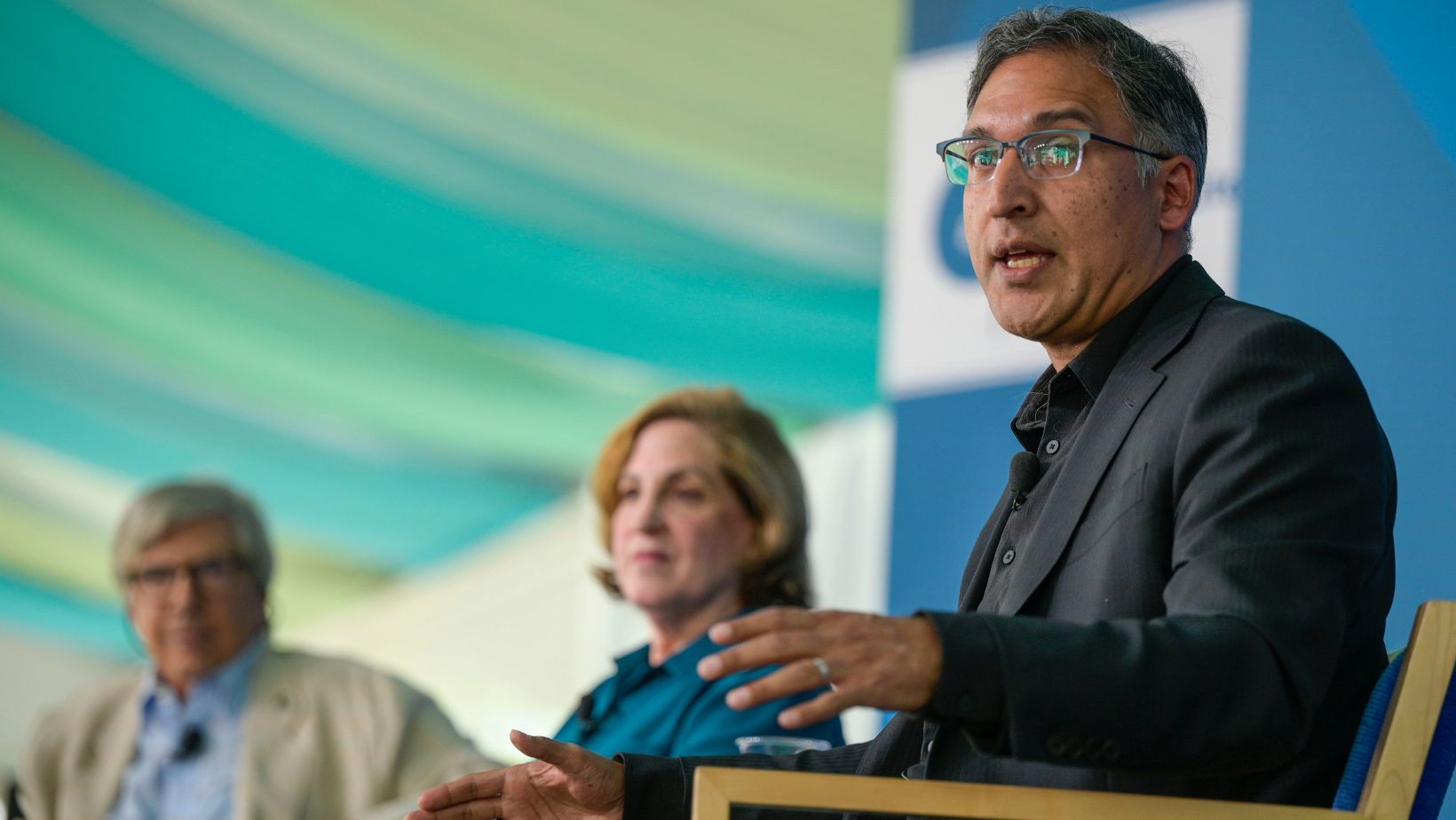Numerous phenomena are converging to cause the great American disaffection that’s playing out in this year’s presidential campaign, according to two Democratic governors who recently spoke at an Aspen Institute event in Aspen, CO.
Colorado Gov. John Hickenlooper and Connecticut Gov. Dannel Malloy peppered their August 12th discussion with historical analogies to explain factors feeding unsettled issues of economic stagnation, globalization, trade, immigration, political redistricting, and racism and a changing America.
Fueled by rapid technological and business innovations in the last decade and a half, outsourcing and manufacturing moving to the far East have led to people not only losing jobs but entire careers again and again, said Hickenlooper, a businessman-turned-politician who could relate after being laid off in the mid-1980s and not working for two years.
“I looked in the mirror to see a different person than I used to see,” he said. “And I began to doubt some of the things that I thought were core values of who I was.”
Add to Americans’ frustrations the fact that undocumented immigrants fill many low-wage jobs and small businesses who won’t hire them are suffering competitively, and “there’s anger that’s well placed” among both Republicans and Democrats, said Hickenlooper, especially given the perception that government only helps the very poor and the very rich.
Regarding immigration and its effects, both real and perceived, “I think the idea of America as a melting pot is being challenged,” he said. “It’s more of a salad bowl. It’s this frustration that we’re not where we were before, and it’s hard for people to digest that level of change.”
The last time there was this level of job displacement was after World War I, said Hickenlooper, when factories were electrified and the assembly line took hold, giving rise to the Wobblies, mass labor strikes, and later, the woes of the Great Depression.
Adding fuel to the fire, according to Malloy, is wage stagnation, being involved in the longest war this country has ever been in, and underinvestment in infrastructure for the better part of 40 years.
“All these things come together to cause this frustration, and then you just need somebody to light a match,” Malloy said, alluding to Republican presidential candidate Donald Trump when he added that “at least one person is not afraid to yell ‘Fire!’.”
Malloy theorized that Trump and some politicians use a divide-and-conquer approach based on irrational fears to garner support. After the November 2015 Paris terrorist attacks, more than 20 US governors signed on to a declaration initiated by Michigan’s governor refusing to let refugees into their states, even though refugees “are the most vetted people who want to come to America,” said Malloy, comparing them to the attackers in Paris and Brussels, all European citizens who would have had no problem getting into the United States.
Political campaigns have also been run and won based on opposition to LGBT rights, union rights, and the phantom issue of voter fraud, said Malloy.
Racism is a factor that’s “bigger than anyone thinks; it’s the wallpaper on the walls of any room we go into,” he said, pointing to the birther conspiracy theory that claimed President Barack Obama wasn’t a natural-born American citizen (even though he’s American by blood anyway, through his Kansan mother). “No one ever questioned the legitimacy of a white president the way they did of a black president.”
And in 2010, people were running for government on the basis that they would pass constitutional amendments saying that Sharia law could not be the law of that state.
“People are smart at picking issues that divide people, and nothing divides people more than race and religion,” said Malloy, who, alluding to the rise of Hitler, said he never understood the forces that shaped Europe between the two world wars. “Then this year came along. … You thread these things together enough, and that’s how you divide and conquer.”
Both governors also believe that an increasingly manipulated American political system — which historically has relied on the health of both parties to function properly — plays a larger role in its partisan divide than people think.
Primary voting is so low that the extreme wings of each party determine who will be on general election ballots, Hickenlooper said, resulting in gridlocked legislatures. Hickenlooper gave the example of not being able to pass a basic infrastructure improvement bill in Colorado, where not one Republican would vote for it.
Referring to redistricting after the 2010 midterm elections, Malloy said that “gerrymandering districts reached a high point in America” not seen since after the Civil War. With Congress more or less predetermined due to this redistricting until at least after the next census, Malloy called it a more “serious impingement on our liberties” than most people know.
Governors Jay Inslee (Washington) and John Bel Edwards (Louisiana) were invited to be part of the conversation as well. Inslee could not participate in the discussion due to an illness and Bel Edwards flew home to deal with the historic flooding unfolding in his home state.

